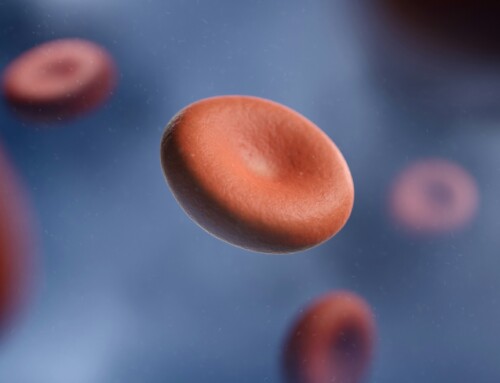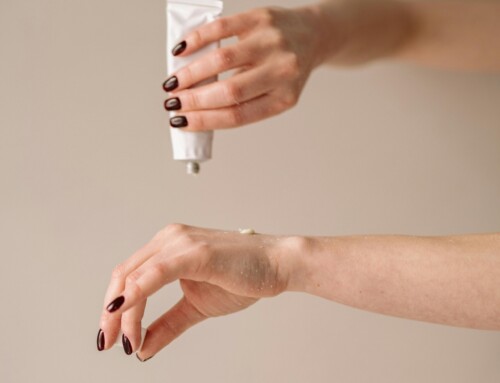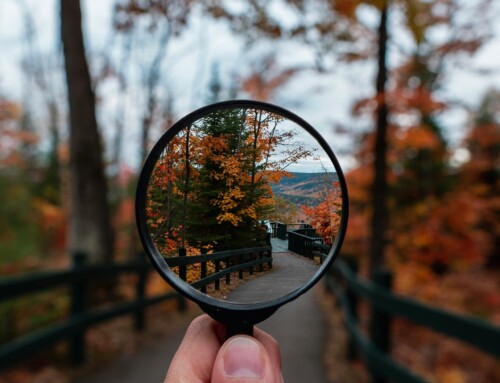Share
Author
Kohei Iguchi
Share
Discoid Eczema – Demystifying The”Coin-Sized” Rash And Its Link To Your Liver!

Ever noticed a persistent, stubborn rash that looks a bit like a coin on your skin? You might be dealing with something called discoid eczema, also known as nummular dermatitis. At Waterwell Clinic, we see all sorts of skin concerns, and this is one that often leaves people scratching their heads – literally!
What Exactly Is Discoid Eczema?
Imagine tiny, round, or oval patches of eczema, about the size of a coin, appearing on your skin. That’s discoid eczema in a nutshell. While it’s more common in adults, it can pop up at any age. These patches usually start as little bumps with slightly fuzzy edges, then can progress to blistering, weeping, and crusting, eventually settling into pink, red, or even purple lesions with flaky skin in the middle. They can be incredibly itchy and are often found on the lower legs, torso, or forearms, though they can also appear on hands and fingers. Sometimes new patches will appear as old ones fade, or even reappear in the same spots!
Why Does It Show Up? Uncovering the Triggers
Discoid eczema often seems to worsen in the cooler months. Why? Because the dry air, heating, and hot showers we use to stay warm can unfortunately dry out our skin, making it more vulnerable.
Certain factors can also trigger or exacerbate discoid eczema:
- Age: Older adults, whose skin tends to be naturally drier and thinner, are particularly susceptible.
- Medications: Some medications, like those used to treat Hepatitis C (e.g., interferon or ribavirin), can play a role.
- Hormonal Changes: Pre- and post-menopausal women may experience flare-ups due to fluctuating levels of hormones that affect their skin barrier and immune function.
- Lifestyle Factors: Excessive UV exposure, long-term corticosteroid use, and even chronic alcoholism have been linked to discoid eczema.
- Underlying Health Conditions: Conditions that can dry out or thin the skin, such as diabetes, thyroid issues, and kidney disease, can also be triggers.
While the above factors can certainly contribute to the cause or exacerbation of discoid eczema, we see a more common trigger in our clinic…
The Role Of The Liver in Discoid Eczema
Interestingly, there’s a strong association between discoid eczema and liver dysfunction. Your liver is a major detoxing organ of the body. day in and day out, constantly filtering out all sorts of unwanted substances – from environmental toxins to byproducts of our own metabolism. It transforms these harmful compounds into harmless ones that can be easily flushed away, keeping your entire system clean, balanced, and ready to take on the day. It’s truly a vital player in keeping you feeling vibrant and healthy from the inside out.
While the exact link isn’t fully understood, it’s thought that when our body struggles to detoxify through its usual channels (like the gut and liver), the skin can become an alternative elimination route. It’s the reason why chronic alcoholism is linked to discoid eczema! Imagine your body, unable to get rid of the toxins from alcohol, or even day-to-day exposures of gas fumes, pesticides and herbicides from food, and cleaning chemicals. Those toxins can accumulate in your body, but it eventually needs to make its way out. Your skin is often forgotten as one of the major elimination channels of your body, and it has the largest surface area! So when the body pushes the toxins through your skin, it will get irritated and damaged.
5 Easy Things You Can Do To Support Your Liver
- Reduce Your Environmental Exposure – Avoid alcohol, cigarette smokes and vaping. Be mindful of chemicals you are exposed to through your work (e.g. hair dresser, mechanic, cleaner), and wear appropriate protective gear! Make sure that your living environment at home is also free of moulds (mould spores can be extremely toxic!)
- Be Mindful Of Your Food – Foods can contain unwanted toxins! Pesticides and herbicides from fresh produce, BPA and microplastics from our containers, and heavy metals like mercury, lead and cadmium from large fish, brown rice, some leafy greens like spinach and root vegetables like carrots and sweet potatoes. Aim to purchase fresh organic foods where you can, or otherwise make sure to soak the non-organic vegetables in salt/vinegar water for 10 minutes to wash away the chemicals before cooking. Use non-plastic food containers wherever you can, and avoid microwaving any plastic!
- Be Mindful Of Personal Care Products – Our skincare products, ranging from make-up, shampoos and deodorants, can contain toxins that can be harmful to the body. These include phthalates, parabens, formaldehyde, sulfates, and certain fragrances. Some products may also contain aluminum, which can reduce your ability to detoxify the body and even cause neurological issues.
- Encourage Detoxification Through Diet! – Certain foods that you can find at your local supermarket can help support your liver. Cruciferous vegetables, like Broccoli, Kale, Cabbage, Collard Greens, Brussel’s Sprouts, Cauliflower, Radish, Watercress, Rutabaga, and Turnip, contain sulphur compounds which helps to increase the activity of phase 2 liver detoxification process. Herbs like Ginger, Fennel, Garlic, Oregano, Turmeric can also do the same thing! And remember to drink lots of water – this encourages urine output, which is another way to eliminate waste, aaaaand hydrate your skin at the same time! A glass of lemon water the first thing in the morning is a fantastic way to detox your body!
- Use Liver Supporting Herbs and Supplements – While herbs and supplements need to be used in caution because it can elicit a healing crisis (worsening of symptoms before it gets better) if your body is not prepared for a detox, and interact with many medications, there are some things you can use to encourage some gentle cleansing of the body. Herbs such as Milk Thistle, Dandelion and Turmeric are great for detoxing the body. Nutrients like Lipoic Acid, Choline and Taurine are also helpful to support the health of your liver cells. Spirulina is a blue green algae rich in protein, vitamins, minerals and antioxidants that supports liver detoxification by helping reduce free-radical damage and also assisting in chelating harmful metals out of your body. It can be a nice addition to your daily smoothy to support the liver!
Don’t Self-Diagnose! Getting the Right Answer
Because discoid eczema can look a lot like other skin conditions – think psoriasis, ringworm, or pityriasis rosea – it’s really important to get a proper diagnosis. At Waterwell Clinic, we can help by performing a physical examination, taking a good case take, and sometimes recommend skin swabs or even a biopsy to ensure we know exactly what we’re dealing with.
Suffering from a persistent rash? Don’t hesitate to reach out to Waterwell Clinic. We’re here to help you understand your skin and find natural, effective solutions for your well-being!



